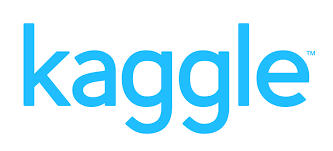
9 Paths to a Data Science Interview

(twins_nika/Shutterstock)
Springboard surveyed about 20 people about the hardest parts of the data science interview process as part of the research for our free guide to data science interviews. Surprisingly, the answer we got back had little to do with the technical questions we thought were the hardest. While that ranked second with 68% of people selecting it as one of the hardest parts of the interview process, a whopping 80% of people selected getting a data science interview itself.
There wasn’t much literature out there about how to go about doing that, especially for people who are transitioning from different careers. In the course of creating our data science interview guide, We dived deeper, and looked through real-life case studies as well as different scattered resources that were out there.
We found that there were traditional paths to job interviews that could work to a certain degree in data science. We also found that there were new proactive approaches, especially with emerging startups, where non-traditional tactics could get candidates at the top of the hiring race.
Traditional Paths to Job Interviews
If it isn’t broken, don’t fix it. While a lot of the new proactive tactics we discuss can have a lot more efficacy, it’s always good to go to the basics.
1- Data Science Job Boards and Standard Job Applications
You can submit your resumes and cover letters to company careers sites. Then you can wait and hope. We’re not saying to avoid this route, but it shouldn’t be the one you rely on.
You can use Indeed and Careerbuilder to search for different data science postings. Then there are specific job boards for the data science space.
2- Work with a Recruiter
You can contact recruiters who can help put you in touch with the right employers. There are recruiters who specialize in the data science and technology spaces. They are gatekeepers to jobs that are never listed on public outlets. Treat them accordingly.
3- Go to Job Fairs
Job fairs in data science are far and few in between, though Harvard and Stanford do host computer science job fairs with plenty of data science jobs for their students. You’re largely better off attending either events or meetups with the local data science community.
Proactive Paths to Job Interviews
We’ve covered the traditional paths to job interviews, the options you might think are the default. These days however, getting an offer sometimes requires some hustle and grit outside of the normal, safe options. Startups provide a large number of new data science jobs. Their culture and hiring tactics have trickled up to large companies that a decade ago were just startups as well. The result is a new hiring environment where oftentimes, one has to be proactive to reach decision-makers who have known nothing but grit when they built their own companies.
4- Attend or Organize a Data Science Event
You need to find people who are interested in the data science community in order to find hidden opportunities and become proactive at integrating into the community. There are several events where you can do this, from larger conferences to smaller community meetups. This includes conferences like:
Strata Conference:
The Strata Conference is a big data science conference that takes place worldwide in different cities. Speakers come from academia and private industry: the themes tend to be oriented around cutting-edge data science trends in action. Practical workshops are provided if you want to learn the technology behind data science, and there are plenty of networking events.
KDD (Knowledge Discovery in Data Science)
KDD or Knowledge Discovery in Data Science is another large data science conference. It’s also an organization that seeks to lead discussion and teaching of the science behind data science. Membership and attendance at these conferences offers an awesome way to contribute to growing trends in data science.
NIPS (Neural Information Processing Systems)
NIPS, or Neural Information Processing Systems, is a largely academic data science conference, which is focused on evaluating cutting-edge science papers in the field. Attending will give you a sneak preview of what will shape data science in the future.
We’ve listed the major conferences where the data science community assembles, but there are often smaller meetups that serve to connect the local data science community.
The San Francisco Bay Area tends to have the most data meetups, though there is usually one in every major city in America. You can look up data science meetups near you with Meetup.com. Some of the largest data science meetups, with more than 4,000 members, are SF Data Mining, Data Science DC, Data Science London, and the Bay Area R User Group.
You’ll want to join the events, or if there isn’t anything around you locally, you’ll want to create a meetup yourself. Our director of data science education, Raj, got a job by becoming known as a data science connector by hosting a local meetup in the Atlanta area.
5- Freelance and Build a Portfolio
Sundeep Pattem is a data innovation leader at the California Department of Justice. He’s also mentored for several data science courses and as a data scientist, he works on creating end-to-end solutions that extract value from data. He has his own personal websites with different data science projects.
His breakthrough into data science came when he found an unsolved problem in energy sustainability, and worked to solve it. He was soon a published author at a prestigious academic conference, and shortly thereafter, he was hired to become a practicing data scientist.
If you freelance around data problems you love and build amazing solutions, and keep a record of everything you do in an accessible portfolio that tells a storyaround your passions,
6- Get Involved in Open Source and Open Data
The most interesting projects in the world don’t necessarily reside in secretive company databases anymore. They are often in open source repositories on Github. This includes the Natural Language Toolkit project which helps deal with human language as a data source, and the various libraries that make up the Python data science and machine learning toolkit. The R community also hosts many of its packages on a consolidated public website.
Many leading CTOs will hire based on your contribution to open source projects, and may even find you through that route. It’s easy to tell if somebody is able to work in a team and build amazing things through the transparent glass of open source. Make sure you take advantage.
7- Participate in Data Science Competitions
If the broad confines of open source projects aren’t the sort of thing that gets you going, and your creativity thrives best in more confined situations, consider joining a data science competition.
Data science competition platforms like Kaggle, Datakind and Datadriven allow you to work with real corporate or social problems. By using your data science skills, you can show your ability to make a difference, and create the strongest interview asset of all: a demonstrated bias to action.
One of our Springboard mentors, Sinan Ozdemir, competed his way to a data science job based on his work on problems on Kaggle.
8- Ask People for Coffees, Do Information Interviews
At the end of the day, your network is what will get you the best chance at a new job. You should seek to know more people in the field you want to work in, if only to get an idea of the problems they have and which you can solve.
Legendary entrepreneur and strategist Steve Blank has a great framework for getting coffees with people too busy to see you as most data scientists will be. You have to find a way to provide value of some kind and look to give them a fresh perspective on the problems they face.
This can culminate in an informational interview where you seek advice and information from data scientists in the field. If you do this right, you’ll constantly grow your network of data science opportunities and you’ll understand more about how data science works in industry.
9- Data Hackathons
In line with the trend of seeing work in action, data hackathons offer you an unique opportunity to learn data skills with a motivated team. You will have to solve a data problem in a couple of days.
An example of this kind of hackathon is the DataWeek hackathon in San Francisco.
About the author: Roger Huang is an eternal learner who is fascinated by the new data economy. He works in growth for Springboard, which provides data science training and workshops, and in his spare time, he enjoys learning languages (Spanish and Python) and sizable portions of gelato.



























